New collective gives platform to black, Indigenous and artists of colour in Halifax
Halifax lacks spaces for BIPOC artists, says Masuma Khan
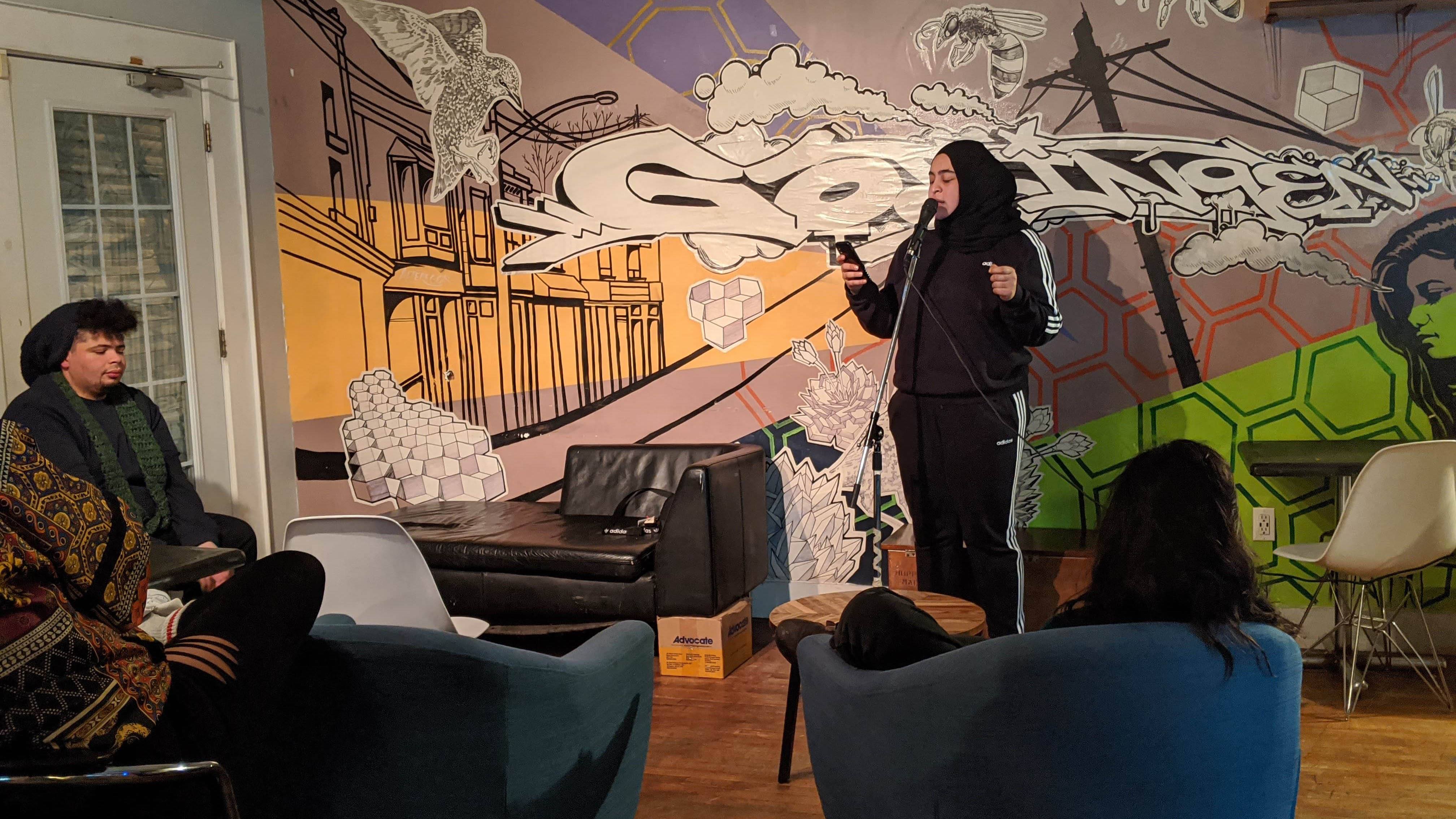
caption
Masuma Khan performs at the BIPOC 2020 Vision event she co-organized with Andre Fenton.Andre Fenton and Masuma Khan were in Alteregos Cafe on Saturday evening, eagerly watching the front window waiting for groups of artists to enter the building at any moment.
They had just unlocked the doors to their first BIPOC Vision 2020 Open Mic Night event. Last year, the two writers sat under the same artful ceiling light covered in a shade of metal gears and talked about the lack of art spaces for the black, Indigenous and people of colour (BIPOC) population in Halifax.
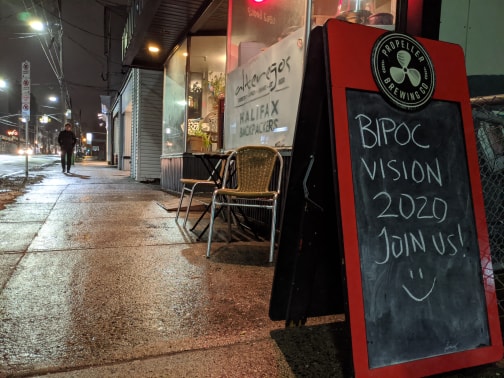
caption
Alteregos was open late on Saturday to accommodate BIPOC artists showcasing their work.Fenton and Khan developed Saturday’s event to showcase art from Halifax’s BIPOC community. A group called BIPOCalypse has hosted similar events in the past. Their last event was in July of last year, according to Facebook.
Fenton and Khan hope their new artist collective will bring light to various art forms in the BIPOC community ranging from paintings to podcasts. Related stories
“A lot of time it feels like we’re alone doing this work and no one really appreciates us,” Khan said. “The idea is to be able to build a platform for people to showcase their art but also build a community out of that where we can support each other’s art.”
Khan is a writer and community activist. Khan co–organized a rally at Halifax’s Victoria Park on Saturday calling for peace in Iran. When she’s not hosting events, she works as a BIPOC community outreach coordinator in the city.
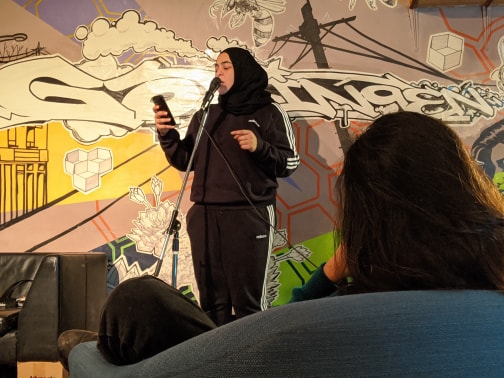
caption
Masuma Khan performs a spoken word poem to an audience at Alteregos Cafe.Her writing, which she sometimes performs at community events, reflects her passion for advocacy and touches on topics like violence, imperialism, colonialism and cultural genocide. Khan feels the themes in her performances don’t resonate with audiences in less diverse spaces.
“We deal with the everyday consequences and realities of racism, and that’s an important piece about being able to express that freely in a space where the organizers are holding that space for you and are supporting that kind of message,” Khan said. “This is us, our voice, our community.”
Fenton nodded in agreement. “I want people to be unapologetically themselves and I want this space to offer that,” he added.
He performed his poem “Letter to my 10 year-old self,” on Saturday. The din from the audience of about a dozen people fell to a hush as he talked about love, oppression and life advice.
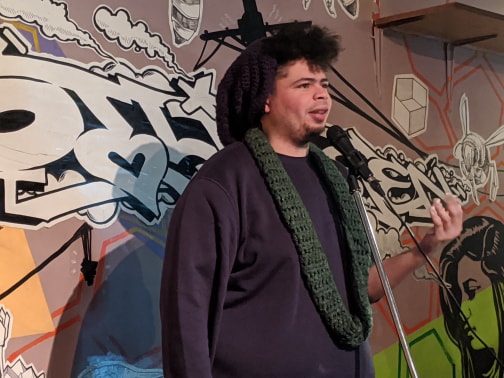
caption
Andre Fenton recites his poem “Letter to my 10 year-old self” at the first BIPOC 2020 Vision event.
“Starting out as an artist, I would have benefited a lot having a space like that,” Fenton said. “I feel like the space that we’re trying to create where we have that kind of shared community and we make space for each other and help motivate each other, I think it really makes a world of a difference for new artists coming in.”
Vonté Desmond took to the stage after Khan and Fenton. He sang and rapped with an animated audience bouncing to the beat. When he finished, Alteregos Cafe echoed with a loud roar of compliments.
An African Nova Scotian, Desmond noted that while he was a member of the BIPOC population, he wasn’t sure what that meant. But he added, “If this is where I’m welcome, this is where I’m celebrated, this is where I’m going to be.”
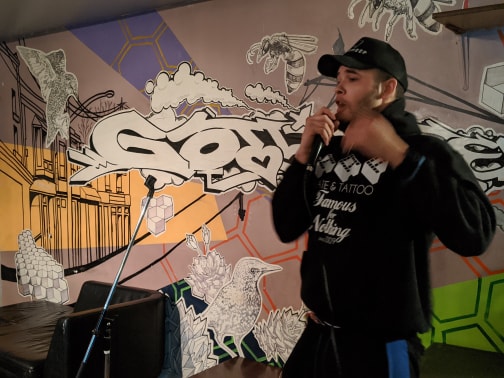
caption
Vonté Desmond was one of the artists who performed at Alteregos on Saturday.Khan and Fenton said they plan to bring this type of community and support to the café on the second Saturday of every month.
While BIPOC 2020 Vision asks that participating artists come from BIPOC communities, the event welcomed anyone to come observe the performances and productions.
About the author
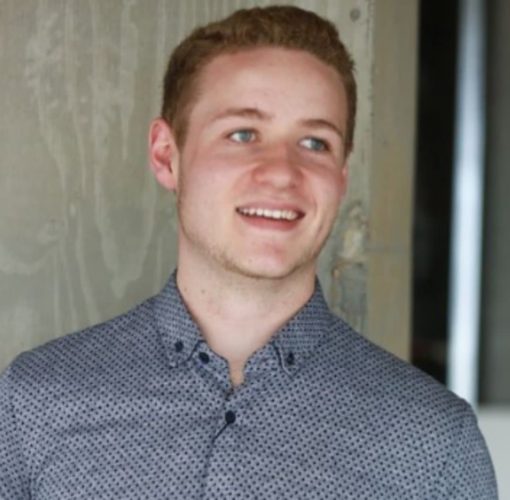
Dayne Patterson
Dayne Patterson is a recent graduate student at the University of King's College. He's reported from all over Canada, including B.C., Alberta,...
R
Rebecca
M
Mickey
C
Connie